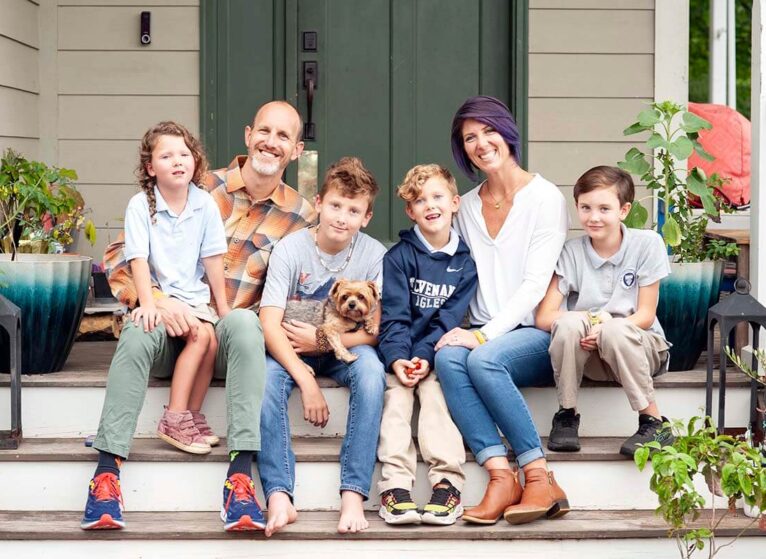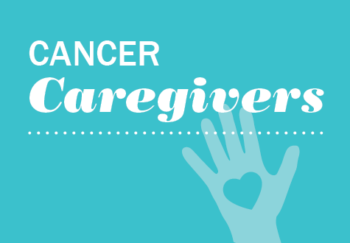There are parenting moments no one prepares you for. And administering your child’s chemotherapy? Isn’t something most people ever feel ready for. But that’s just one of the ways that Benny and his family rose to the challenges posed by his lymphoma treatment.
No family has a plan ready for dealing with childhood cancer. But when the stakes are high, you don’t exactly want to go with the flow. What’s incredible are the ways families adapt.
In January 2022, doctors at UVA Health Children’s diagnosed Benny, then 11, with T-cell lymphoblastic lymphoma. As Covid restrictions eased and kids returned to school, Benny and his family navigated a scary diagnosis. And one that came with many more restrictions.
Since his diagnosis, Benny and his family have had to figure out a lot. While some challenges have been expected, most weren’t. At first, they agreed the uncertainty was the worst thing. Here are 6 of the ways they adapted, and how they might help other families going through that initial uncertainty.
1. Let your kid find ways to occupy their mind.
Benny’s a quick kid. But cancer treatment is exhausting, and there are many days spent on the couch. A movie lineup that’s fun and interesting can keep your mind occupied while your body heals.
His recommendation? The Marvel lineup. In chronological order. Considering the Marvel movies combine to be more than 120 hours, it’s a pretty good starting point. Humor and action are a great combination to look for.
2. Home medical equipment looks daunting but is made for people without a medical degree. You can do it.
You don’t need a medical degree to do everything from changing out a PICC line to hooking up your child’s chemotherapy drugs. But that doesn’t mean it’s not scary the first time.
“It was just a ball. Of chemo,” Sandra explains. “And I was so scared I was going to do it wrong. I left it on for hours because I wanted to make sure he got the full dose, but then I was scared he was going to get air in his IV.”
Spoiler alert: Sandra hadn’t hooked it up wrong, and Benny didn’t blow up like a balloon. Home medical equipment is specially designed so that many things, like giving too much or too little medicine, aren’t possible.
"Children diagnosed with cancer will spend a significant amount of time in the clinic or the hospital getting chemotherapy. So, any time we can get them the therapy they need at home – that’s a win!" says Daniel "Trey" Lee, MD.
He continues, "We use prefilled chemo “balls,” which is a closed system that, with the proper training provided by our home health nurses, is very safe. It is filled with just the right amount of the drug that that particular child needs. It’s simple to use, and lets the kid stay home rather than spend another day in the clinic."
3. It’s not about the textbook; it’s about writing your own story.
When Benny was diagnosed, Sandra was given a thick binder with what amounted to a complete cancer textbook. For her, it was too much all at once. It was a guidebook of what was going to happen, or rather what could happen. From marriage problems to siblings feeling jealous about a lack of attention. But truthfully, all cancer stories are different.
So, Sandra showed me the cancer planner they made on their own instead.
Careful notes about treatments, medications, and questions. Along with all of the regular goings on of life. Because with 3 other kids, John and Sandra still had a lot of ins and outs to keep an eye on.
Unfortunately, as much as everyone would love to hand you a finished plan, having a child with cancer means drafting your own.
A Cancer Diagnosis Changes Everything
We're here to support families as they navigate childhood cancer.
4. It’s a marathon, not a sprint.
I wasn’t surprised when I found out Sandra and John were avid runners. They both know how to keep their eyes ahead on the next thing. When they were talking to Benny’s team about treatments, Sandra asked for the entire plan. For the next two-and-a-half years.
“They don’t usually do that,” John says. “They just have you focus on the next course.”
But Sandra wanted to know how long it would take. From January 2022 to May 2024. Sometimes the dates changed. Treatment days required certain health milestones. But with targets, they started drawing the map to get them across.
“What’s after May?” I ask.
While they agree there needs to be some kind of commemoration, the most important thing is that nothing comes after May. Benny will need to come in for scans for the next 5 years just to make sure there's no relapse. But otherwise they'll be filling their planner with more fun family outings than doctor's visits.
5. Let every family member handle it their own way.
Each member of Benny’s family has handled the cancer in their own way. Sandra can tell us the ins and outs of the function of the cells, the way chemo affects the body, and how to perform a dozen medical procedures at home. But online support groups aren’t helpful for her.
There’s a ton of information about cancer. And while some people find comfort in knowing the details, others really don’t. And that’s okay, too.
Benny’s approach is different. “I’m really trying to distance myself from it as much as possible,” he shares. Unfortunately, the facts can’t really begin to address the why, which is unanswerable.
Even Benny’s siblings found different ways to support him, from shaving their heads in solidarity to leaving notes for him. They also made sure they did everything they could to keep him safe. Even when masking mandates at their school ended, his siblings stood their ground. “Everybody pulled together,” Sandra says. “Everybody didn’t even question or fuss about keeping their masks on.”
6. You’ll learn how strong you are.
Childhood cancer is technically rare. But it’s hard to find anyone who hasn’t been affected by it in some small way. For Benny’s family, there’s nothing small about the effects. And while they’ve risen to the challenges, that doesn’t make them less daunting.
Perspective is one of those things you wish you could hand out with a diagnosis. When asked what Benny would tell his 11-year-old self, he simply replied “That it would be hard, but that it would be okay.”
Even in hindsight, it’s not the sort of thing that ever seems small.
Sandra’s final piece of advice for other families in the thick of it? “You’re stronger than you think you are.” From PICC lines and chemo to holding your child’s hand while you hold back tears, families are bringing their all every day.
It’s been almost two years since diagnosis. And Benny’s doing great. He’s back in school and getting to spend time with his friends. While he still has to get treatment (and will for several more months) it’s not as intense as it once was. And while the family will always have those memories, they’re looking forward to making new ones.


